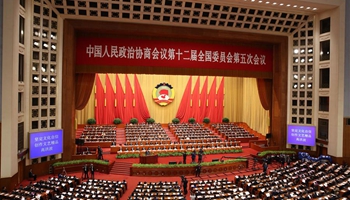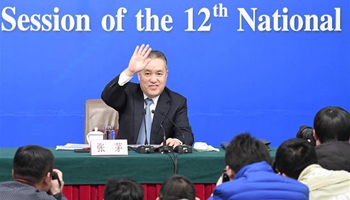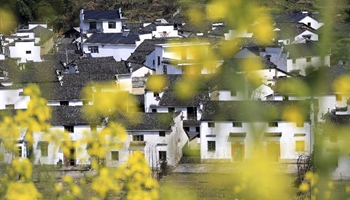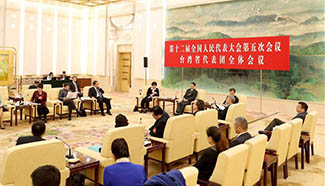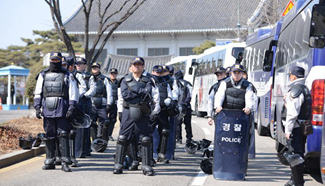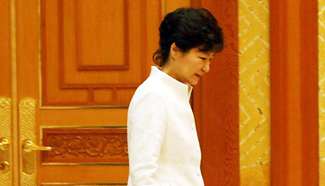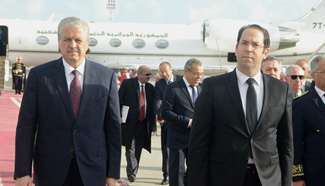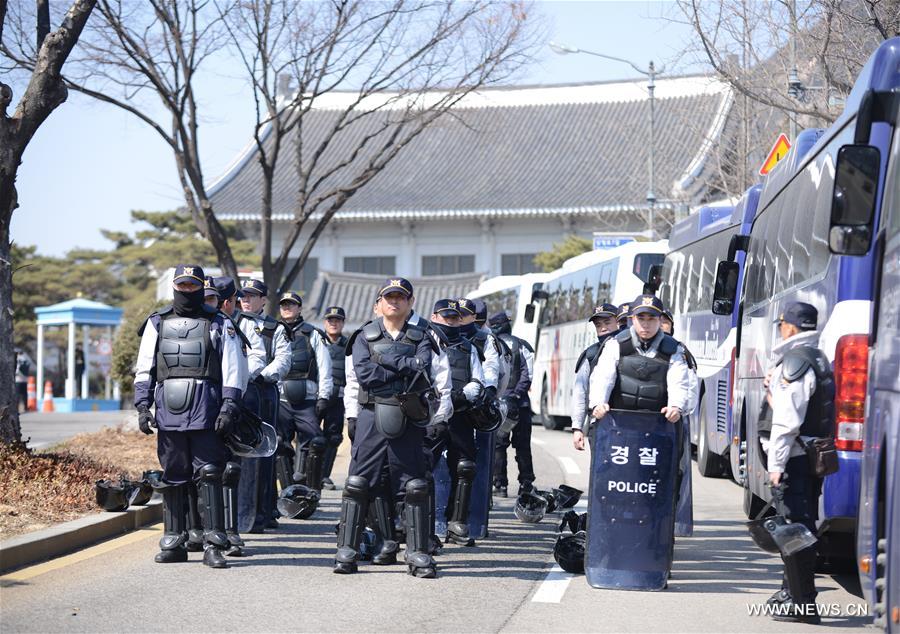
Police gather near the presidential Blue House in Seoul, South Korea, March 10, 2017. South Korean President Park Geun-hye was ousted as the country's head of state on Friday after the constitutional court upheld a motion to impeach the scandal-ridden leader. (Xinhua/Liu Yun)
by Yoo Seungki
SEOUL, March 10 (Xinhua) -- As South Korea expects a presidential election in the coming 60 days after Friday's removal of President Park Geun-hye from office, one of the most urgent tasks facing the country's next leader now seems to be realizing national reconciliation and unity.
President Park was ousted as the country's head of state after the constitutional court upheld a motion to impeach the scandal-ridden leader on Friday.
The court's acting Chief Justice Lee Jung-mi read the ruling on the impeachment, broadcast live nationwide, saying it was the unanimous decision of eight justices.
Lee said the court had made all-out efforts for a fair judgment, hoping their decision become a base to lead South Korea towards remedy by ending division and chaos.
The historic ruling made Park become the first South Korean leader to be ousted through impeachment, causing a temporary uncertainty. Outside the court, pro- and anti-Park protesters have held respective rallies.
The Park loyalists insisted on the innocence of the ousted leader, but an overwhelming majority of South Koreans consistently demanded her ouster, expressing hope for a society free from corruption and unfairness.
Local media reported that two of Park's supporters died of unidentified reasons during the rally. One of the dead is in his 70s.
Lee Jae-myung from the Minjoo Party, mayor of Seongnam city to the southeast of Seoul, said, "Today is a great day for people. Impeachment is the start to build a fair country free from corruption, foul play and privilege."
"Genuine unity will only be made possible when completely clearing away the legacy of old days," he added.
Former UN Secretary-General Ban Ki-moon said he respected the court's decision.
Only when people, especially those who protested against the impeachment, accepted the ruling, "can the rule of law, which is the basic value of the South Korean constitution, stand upright," Ban was quoted by the Yonhap news agency as saying.
The court ruled that Park allowed her longtime friend Choi Soon-sil to meddle in state affairs from the shadows for personal gains.
When the National Assembly hesitated to pass the impeachment bill last year, over 2.3 million people took to the streets nationwide to light candles and shout for the parliamentary passage. A week later, the motion was passed.
Despite the passage, candlelight vigils continued.
All of major presidential contenders have been speaking loudly about a fairer society and the severance of collusive links between politicians and businessmen.
Not a few chiefs of conglomerates, called chaebol in South Korea, are suspected of having been involved in the scandal that led to Park's impeachment.
The scandal surfaced in late October, pushing millions of people into the streets to hold rival rallies for and against the impeachment every week. In its ruling the constitutional court said it hoped the ruling would end national division.
Since the Dec. 9 passage in the National Assembly of the impeachment bill, a total of 20 hearings had been held in the court. It took 92 days before the court's final decision, longer than the 64 days required for the 2004 ruling on then President Roh Moo-hyun's impeachment. During the 64-day period, only seven hearings were held in 2004.
Park will be subject to indictment and detention by prosecutors as she lost her presidential immunity following the court's ruling.
Prosecutors have identified Park as an accomplice of her longtime confidante Choi Soon-sil, who is at the center of a corruption scandal that led to Park's impeachment for multiple charges including bribery.




